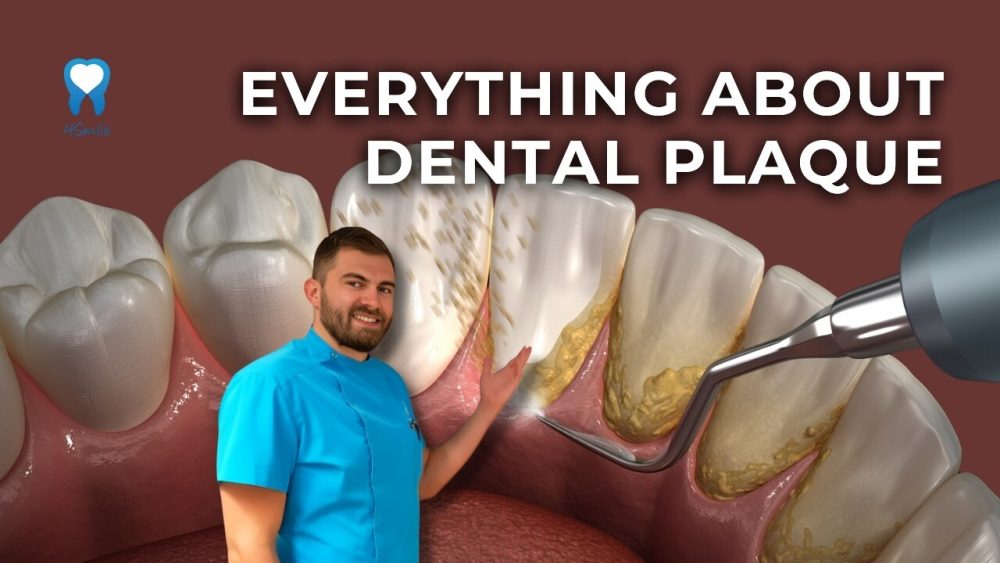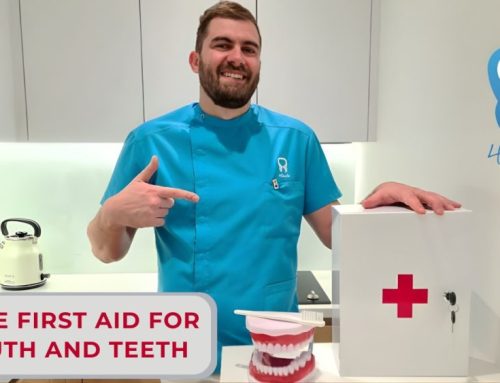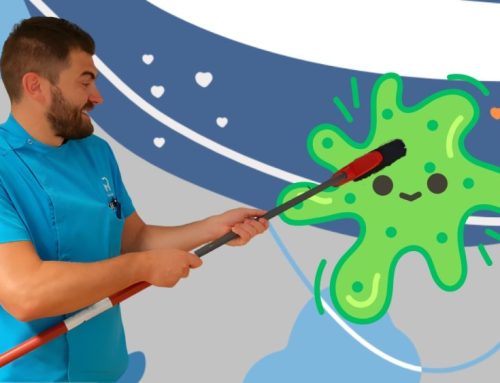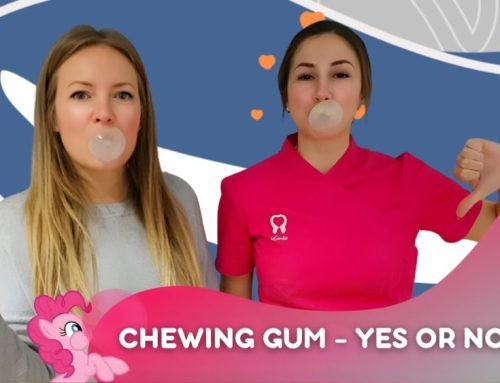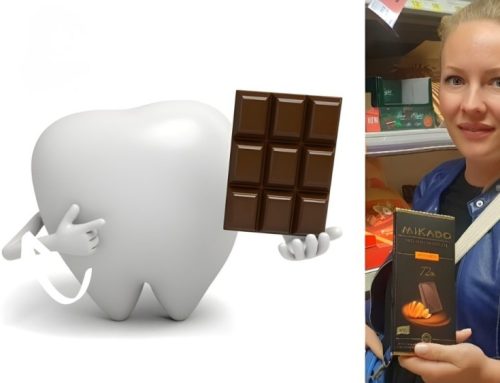Why do some people have more dental plaque and consequently more tartar?
Have you ever wondered why some people have sparkling clean teeth with minimal effort, while others struggle with persistent plaque despite regular brushing and flossing?
The reason lies in a combination of genetics, diet, lifestyle, and natural bacteria in the mouth.
If you’re one of those who struggle with dental plaque buildup, don’t worry – this week’s blog from Dental Center 4Smile explains why this happens and, even more importantly, how you can maintain perfectly clean teeth and healthy gums.
What is dental plaque and why is it a problem for oral health?
Dental plaque is a sticky, colorless layer of bacteria that forms on your teeth and gums every day. The bacteria in plaque feed on sugars from food and drinks, producing acids that can gradually damage enamel and cause cavities and gum disease.
If plaque isn’t removed through regular brushing and flossing, it hardens into tartar (calculus) over time. Once tartar forms, the only way to get rid of it is through professional calculus removal and sandblasting.
That’s why it’s important to understand what causes plaque buildup and how you can effectively prevent it.
Why do some people have more dental plaque?
1. Genetics – Some people are simply more prone to plaque
Just as genetics influences skin type or susceptibility to certain diseases, it plays a significant role in dental health. If your parents have issues with plaque buildup, there’s a high chance you might face similar challenges.
Genetics determines:
- The composition of saliva
- The types of bacteria that naturally inhabit the mouth
- The rate at which plaque forms
If you have a family history of dental problems, you’ll need to put extra effort into oral hygiene.
2. The composition and flow of saliva
Saliva is a natural cleanser for the teeth – it helps rinse away food remnants and neutralizes acids. However, some people have thicker, stickier saliva, which can contribute to faster plaque buildup.
Also, people who suffer from dry mouth (xerostomia) have reduced saliva production, meaning bacteria stay on the teeth more easily. If you often experience dry mouth, increase your water intake and avoid too much caffeine and alcohol.
3. Diet and sugar intake
The food you eat has a significant impact on plaque formation.
The biggest culprits are:
- Sweets and sodas
- White bread and pasta (rich in starch)
- Sticky foods like dried fruit
The best choices for healthy teeth:
- Fresh fruits and vegetables (especially apples and carrots)
- Dairy products containing calcium
- Plenty of water to rinse away food remnants
If you want to reduce plaque, try to avoid sugars and replace them with healthier alternatives.
4. Improper oral hygiene
Even if you brush your teeth twice a day, are you sure you’re doing it correctly?
Common mistakes that cause plaque:
- Skipping flossing
- Brushing your teeth too briefly or superficially
- Using a worn-out toothbrush
- Skipping regular dental check-ups
How to brush your teeth properly:
- Brush your teeth for at least two minutes in the morning and evening
- Use an electric toothbrush for better plaque removal
- Don’t forget to floss – plaque hides between teeth
- Rinse with antibacterial mouthwash
5. Smoking and alcohol
Smoking reduces saliva flow, increasing the amount of bacteria and plaque. Also, nicotine and tar from tobacco smoke cause dark stains on teeth.
Similarly, alcohol can cause dehydration and reduce the natural protection of the oral cavity. If you drink alcohol, make sure to drink enough water and maintain regular oral hygiene.
6. Acidity in the mouth (pH level)
If you frequently consume carbonated drinks, coffee, or citrus fruits, the oral cavity can become more acidic, creating ideal conditions for bacteria and plaque.
Tip: After consuming acidic drinks, don’t brush your teeth immediately because enamel and dentin are more sensitive at that point. Instead, rinse your mouth with water and wait at least 30 minutes before brushing.
7. Health conditions and medications
Certain diseases and medications can affect plaque buildup:
- Diabetes – increases the risk of infections in the mouth
- Autoimmune diseases – may cause dry mouth
- Medications for blood pressure, antidepressants, and antihistamines – may reduce saliva production
If you’re on medication and notice increased plaque buildup, consult with your dentist.
How to prevent plaque and keep your teeth healthy?
Plaque buildup is not inevitable – with proper care, you can keep it under control.
Best tips for healthy teeth:
- Brush your teeth properly at least twice a day
- Use an electric toothbrush for better plaque removal
- Floss daily
- Rinse with antibacterial mouthwash
- Drink enough water to stimulate saliva production
- Eat a balanced diet – more fiber, less sugar
- Regularly visit your dentist for professional cleanings
Visit us at Dental Center 4Smile! Our dentists can help you remove plaque and tartar and give you personalized advice for the best care of your teeth.
Book your appointment today.
Together for your smile!
